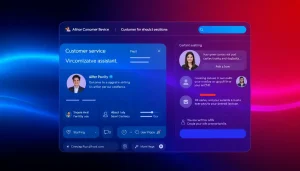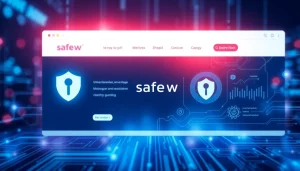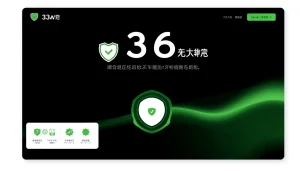Mastering Cold Callers for Wholesale Real Estate: Strategies for Success
Understanding the Role of Cold Callers in Wholesale Real Estate
What Are Cold Callers and Their Purpose?
Cold callers in wholesale real estate serve a pivotal role in connecting potential property sellers with buyers who are interested in purchasing homes at discounted prices. This process involves reaching out to individuals who have not actively expressed an interest in selling, making it a proactive method of generating leads. Typically, cold callers conduct their outreach via phone calls, utilizing scripts to guide conversations and position their offers. This model can significantly boost a wholesaler’s visibility in a competitive market.
The Benefits of Utilizing Cold Callers
The advantages of employing cold callers in your wholesale real estate business cannot be overstated. Here are some notable benefits:
- Lead Generation: Cold calling directly engages potential sellers, identifying motivated individuals who may not otherwise list their properties.
- Cost-Effectiveness: Compared to digital marketing methods, cold calling often requires a lower initial investment. Additionally, the return on investment can be substantial when properly executed.
- Personal Touch: Cold callers can build rapport through conversation, creating a connection that digital strategies often lack.
- Immediate Feedback: Calls provide instant responses, allowing cold callers to adapt their pitches based on real-time feedback and objections.
Key Skills for Effective Cold Calling
Success in cold calling hinges on a combination of essential skills. Identifying and honing these skills is crucial for effective outreach:
- Communication Skills: Clear articulation and active listening are vital for understanding seller needs and conveying offers effectively.
- Emotional Intelligence: Demonstrating empathy and patience allows callers to connect better with prospects, enhancing receptiveness to offers.
- Sales Techniques: Proficiency in sales methodologies is important, as it helps callers handle objections and close deals more effectively.
- Persistence: Cold calling often results in rejection; maintaining motivation and resilience is crucial for continued success.
Finding the Right Cold Callers for Your Wholesale Business
Where to Source Quality Cold Callers
Finding skilled cold callers can be a challenge, but several avenues exist to source the right talent. Here are some effective strategies:
- Freelance Platforms: Websites like Upwork or Fiverr are excellent sources where you can find experienced cold callers who specialize in real estate.
- Real Estate Networking: Engaging with local real estate investment groups or forums can connect you with potential hires who have a proven track record.
- Job Boards: Posting job advertisements on major job boards like Indeed or LinkedIn can attract candidates actively seeking opportunities in cold calling.
- Referrals: Leveraging your personal and professional network can help you find recommended candidates who fit your requirements.
Key Qualities to Look for in Cold Callers
When assessing candidates for cold calling positions, consider these key qualities that contribute to success:
- Experience in Real Estate: Ideally, candidates should have a background in real estate or related fields to understand industry nuances.
- Proven Track Record: Look for individuals or agencies that can provide references and performance metrics from their previous clients or campaigns.
- Adaptability: The ability to adjust strategies based on different seller personalities and responses is essential for overcoming objections.
- Technical Proficiency: Familiarity with CRM systems and calling software enhance efficiency and tracking capabilities.
Assessing Cold Calling Services and Platforms
Investing in a cold calling service can be an effective approach for wholesale real estate investors. Considerations when evaluating these services include:
- Service Portfolio: Assess what additional services they offer, such as lead generation, data cleaning, and training.
- Reviews and Testimonials: Look for third-party reviews or client testimonials to gauge reliability and performance.
- Framework for Compliance: Ensure the service adheres to telemarketing regulations to avoid legal challenges.
- Performance Metrics: High-quality services should provide comprehensive reports on call outcomes and lead performance.
Cold Calling Strategies for Wholesale Real Estate
Crafting Effective Cold Calling Scripts
A well-structured cold calling script is crucial for engaging potential sellers and conveying your message clearly. A script should include:
- Introduction: A brief but friendly introduction that states who you are and the reason for your call.
- Value Proposition: A compelling statement of how your offer benefits the seller, highlighting urgency and potential gains.
- Open-Ended Questions: Asking open-ended questions encourages sellers to share their situations, providing valuable insights for your pitch.
- Objection Handling: Preemptively including responses to common objections can help callers maintain control of the conversation.
Additionally, a practical resource for developing your script is found on our website: Cold callers for wholesale real estate.
Timing Your Cold Calls for Better Results
The timing of cold calls can significantly impact the success rate. Here are best practices for optimal calling times:
- Late Mornings: Calling around 11 am is often effective as potential sellers are more receptive before lunch.
- Early Evenings: Between 4 pm and 6 pm is another prime window when most people are home from work and available to chat.
- Consider Time Zones: Be mindful of the time zone differences if you’re calling a wider geographical area. Adjust your schedule accordingly.
Overcoming Objections During Calls
Objections are a natural part of cold calling in real estate, and having effective strategies to address them is vital. Consider these methods:
- Listen Actively: Pay close attention to the seller’s concerns. Often, they simply want to be heard.
- Acknowledge Concerns: Validate their feelings and acknowledge reasons for hesitation before presenting your counter-arguments.
- Provide Evidence: Use data or success stories from previous transactions to convince potential sellers of the value you offer.
- Prepare for Common Objections: Create a list of frequent seller objections and develop tailored responses to stay ahead of the conversation.
Measuring the Success of Cold Calling Campaigns
Key Performance Indicators for Cold Calling
To evaluate the effectiveness of your cold calling efforts, it is essential to use Key Performance Indicators (KPIs). Some vital KPIs to track include:
- Call Conversion Rate: The percentage of calls that result in a scheduled appointment or follow-up.
- Number of Calls Made: Keeping track of total calls made allows for proper assessment of outreach efforts.
- Lead Generation Rate: Measuring the number of leads generated from campaigns helps assess overall effectiveness.
- Objection Rate: Analyzing the frequency of objections helps identify patterns and necessary script adjustments.
Data Analysis Techniques to Improve Call Outcomes
Using historical data and analytics can help optimize future strategies. Techniques include:
- Identify Trends: Look for patterns in successful calls versus unsuccessful ones to adjust scripts and techniques.
- Segment Your Data: Group leads by characteristics (such as location or motivation) to tailor your approach for each segment.
- Utilize A/B Testing: Experiment with different scripts or calling times to analyze which combinations yield the best outcomes.
Adjusting Strategies Based on Feedback
Feedback from both the cold callers and the potential sellers can provide insights that enhance future campaigns:
- Regular Review Sessions: Schedule periodic reviews to discuss what is working and where improvements can be made.
- Conduct Surveys: Post-call surveys can provide additional insights into seller perceptions and experiences.
- Adapt Materials: Make necessary adjustments to scripts and materials based on constructive feedback.
Best Practices for Cold Callers in Wholesale Real Estate
Maintaining Compliance with Telemarketing Laws
Understanding and adhering to telemarketing laws is crucial for cold callers. Key regulations to consider include:
- Do Not Call Registry: Ensure compliance with the National Do Not Call Registry to avoid penalties.
- TCPA Regulations: Familiarize yourself with the Telephone Consumer Protection Act (TCPA) guidelines to protect against legal repercussions.
- Document Consent: Keep a record of express consent if you intend to contact leads multiple times.
Building Rapport with Potential Sellers
Establishing a connection with potential sellers can significantly improve cold calling outcomes. Techniques for building rapport include:
- Personalization: Tailor conversations to the individual seller’s circumstances, using their name and referencing specific points of interest.
- Empathy: Approach conversations with understanding, recognizing that sellers may have strong emotional ties to their properties.
- Follow-Up: After initial conversations, follow up with personalized messages or emails to reinforce the relationship.
Continuously Improving Cold Calling Techniques
Cold calling is a dynamic skill that requires continuous improvement. Here are practices to ensure ongoing development:
- Training Programs: Invest in ongoing training for cold callers to refine their skills and stay updated on industry trends.
- Review Calls: Recording calls for analysis can provide invaluable feedback for improving performance.
- Peer Feedback: Encourage collaboration among callers to exchange strategies and learn from one another’s experiences.













Post Comment